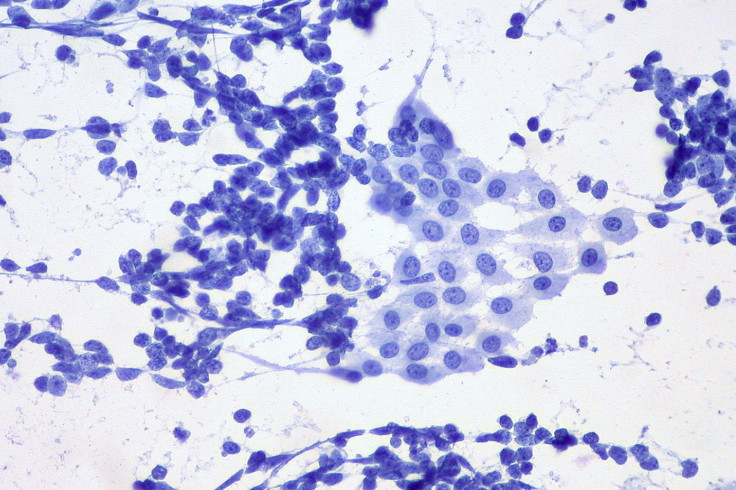Cutting Off A Tumor's Food Supply May Stop Its Growth: The Potential New Cancer Treatment

Cancer feeds on the body's nutrient-rich blood, allowing it to grow to dangerous levels and threaten a person’s life — but what if that supply was cut off? Researchers at Oxford University have figured out that the protein PAT4 helps tumors locate nutrients needed for growth, and it could eventually lead to knowledge on how to starve them.
“We found that aggressive cancer cells manufacture more PAT4, which enables them to make better use of available nutrients than the cells around them — including healthy tissue,” said the study’s lead researcher Dr. Deborah Goberdhan, a genetics professor, in a press release. As defined by the U.S. National Library of Medicine, cancer is a genetic mutation within the body’s cells that eventually grows masses, and if the immune system can’t keep the abnormal cells under control, they further mutate, grow, and spread. These are known as malignant tumors, which destroy surrounding tissue and make it so tumors can develop and create their own blood vessels to acquire nutrients for growth, like oxygen, glucose, and hormones.
However, cancer cells need to first locate this food supply, and without the ability to do so, the tumor will struggle to grow and flourish within the body. Knowing this, Goberdhan and her colleagues developed an antibody that could highlight PAT4 in human tissue. Once they found success in tissue samples, researchers used the antibody to locate PAT4 within tumor samples from patients with colorectal cancer.
In patients, those who had lower levels of PAT4 in their cancer tissue didn’t do as well and were more likely to relapse and die. But when researchers reduced the levels of PAT4, they found that the cancerous tumors grew more slowly.
“Not only do higher levels of PAT4 mean a worse outcome, but lowering levels improves the situation,” Goberdhan said. “This means that we have identified a mechanism, which cancer cells prefer to use and which we might be able to target as part of a combination treatment.”
In 2015, there will have been 49,700 men and women who have died from colorectal cancer in the United States alone, according to the American Cancer Society. Yet it’s only a fraction of the 589,430 people that will die from cancer in total. If researchers can figure out how to starve cancer cells from growing and spreading, it may be a new avenue of treatment for cancer patients.
Source: Goberdhan D and Harris A, et al. Oncogen. 2015.



























